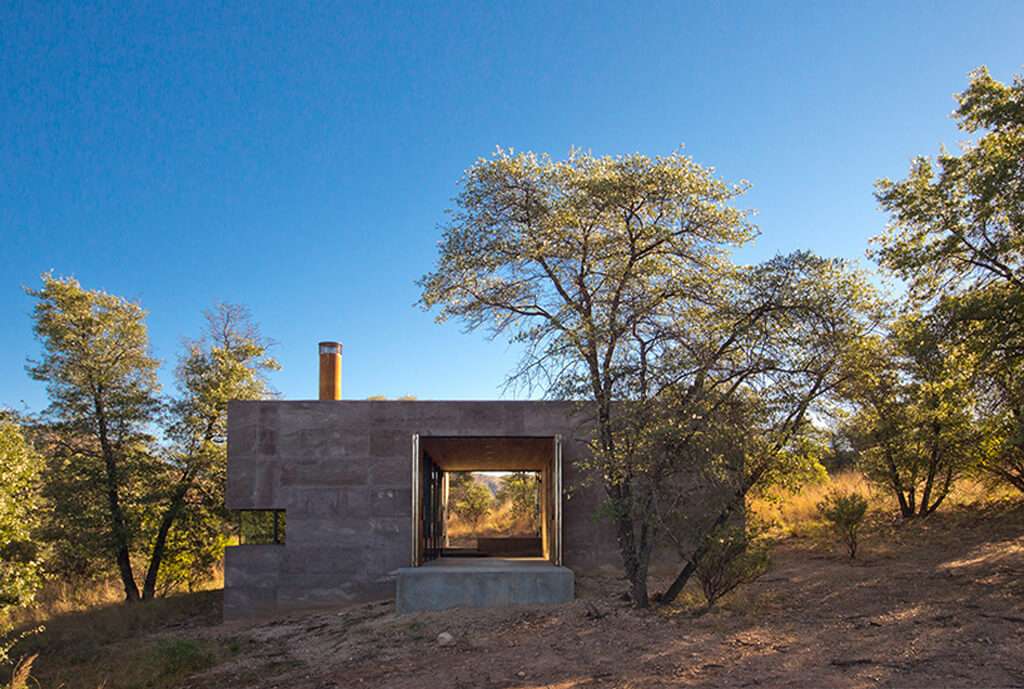Living off the grid in Arizona poses both challenges and opportunities. With a population of around 7.3 million residents, the state is growing rapidly and has become a popular retirement destination. However, despite its size and population, Arizona faces water scarcity issues that make off-grid living difficult. While harvesting rainwater is legal, the state heavily relies on limited sources like the Colorado River. Additionally, high population density in certain cities makes off-grid living more challenging. The hot temperatures and presence of dangerous wildlife, like rattlesnakes, further compound the difficulties. However, Arizona’s sunny climate makes it an ideal location for solar power, although the use of air conditioning can be a challenge. Growing crops in Arizona is also challenging due to high temperatures and limited water availability. Despite these obstacles, the regions of Flagstaff, Prescott, and Sedona in northern Arizona offer potential for off-grid living due to their landscapes, milder climate, and access to water.
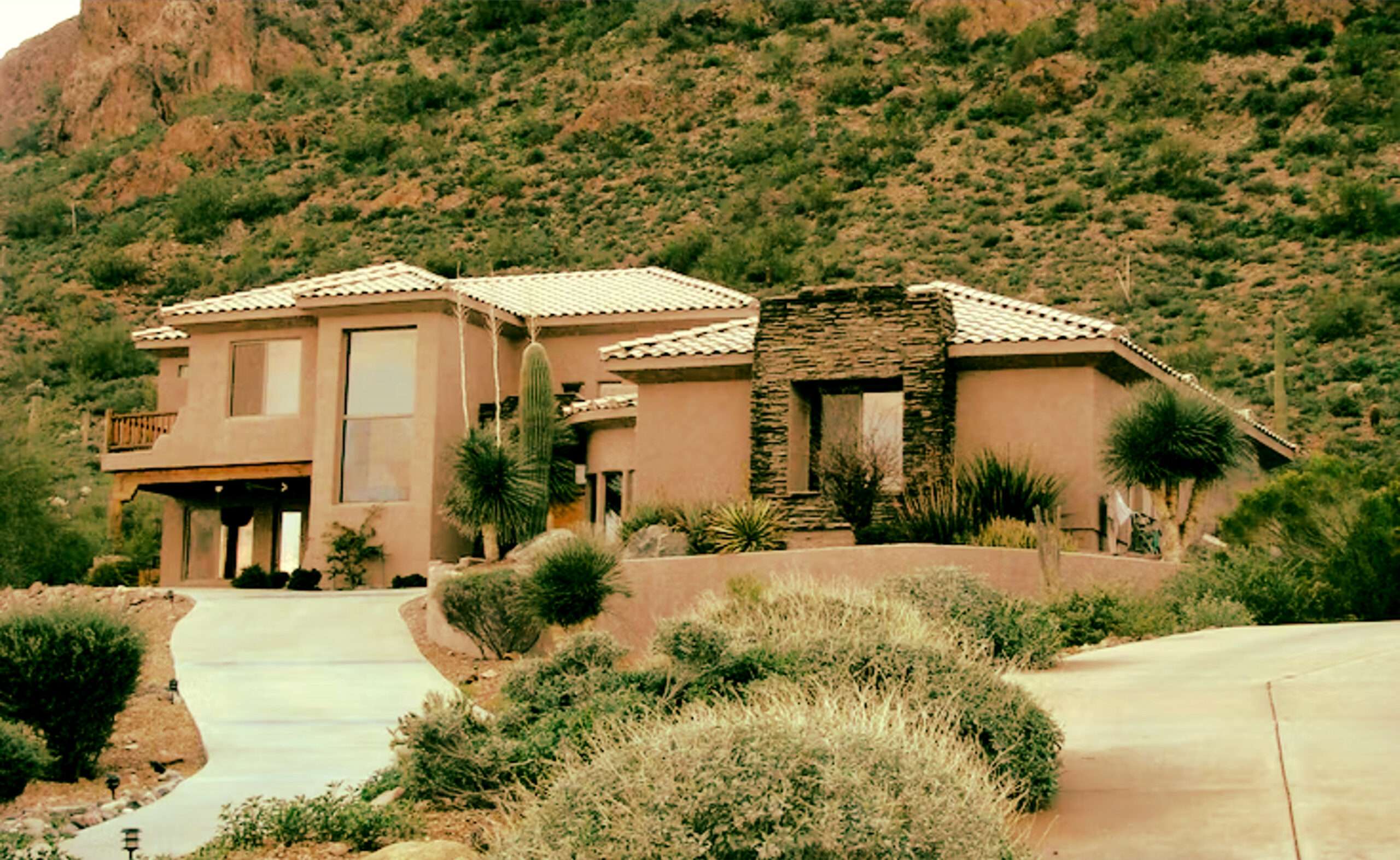
Challenges of Living off the Grid in Arizona
Living off the grid in Arizona presents several challenges that individuals and families must be prepared to face. From the lack of water to extreme climatic conditions, these challenges require careful planning and resource management. Let’s explore some of the main challenges:
Lack of Water
Water scarcity is a significant issue in Arizona, making it one of the most challenging aspects of off-grid living. With a semi-arid climate, the state receives limited rainfall, and residents must rely on other sources to meet their water needs. The lack of easily accessible water can make daily tasks, such as cooking, cleaning, and watering plants, more difficult and time-consuming.
Limited Water Sources
While harvesting rainwater is legal in Arizona, the state relies heavily on limited sources of water, such as the Colorado River. The dependency on this single source puts a strain on water availability, especially during times of drought. Ensuring a consistent and reliable water supply becomes a constant concern for those living off the grid.
High Population Density in Cities
Arizona has several cities with a high population density, making it more challenging to find suitable land and resources outside these urban areas. Living off the grid often requires ample space for homes, gardens, and livestock, which can be limited in crowded cities. Competing for resources with an increased population density can also impact self-sustainability and the ability to live off the land.
Hot Temperatures and Dangerous Wildlife
Arizona is notorious for its hot temperatures, particularly during the summer months. High temperatures not only affect comfort levels but also pose potential health risks when living off the grid. Without access to traditional cooling systems, off-gridders must rely on alternative methods to stay cool and hydrated.
Furthermore, Arizona is home to dangerous wildlife, including rattlesnakes. These venomous snakes pose a significant threat to residents, particularly those living in rural and remote areas. Being aware of the presence of wildlife and taking necessary precautions becomes essential to ensure personal safety.
Challenges of Using Solar Power
While solar power is a viable option for generating electricity in Arizona, it does come with its challenges. With the state’s high average temperatures, maintaining adequate energy storage and balancing energy consumption can be problematic. Additionally, the use of appliances like air conditioning can be challenging with a solar setup due to their high energy demands.
Difficulties in Growing Crops
The arid climate of Arizona makes it challenging to grow crops successfully. The high temperatures and scarce fertile land make it difficult for plants to thrive. Additionally, limited water availability further compounds the difficulties in cultivating crops. Utilizing alternative agricultural methods, such as hydroponics or vertical gardening, may be necessary to overcome these challenges.
Water Scarcity and Drought
Water scarcity is a pressing issue in Arizona, with the state heavily relying on the Colorado River as a water source. However, the river’s water levels have been severely impacted by drought conditions, leading to concerns about future water availability. Off-grid individuals and families must find innovative ways to conserve and manage their water usage to ensure their long-term sustainability.
Extreme Climatic Conditions
Arizona experiences extreme climatic conditions, with scorching summers and mild winters. The average summer temperatures hover around 100°F, while winter temperatures average around 60°F. These conditions can be physically demanding and may require individuals to adapt their lifestyles accordingly. From learning how to cope with the heat to planning for colder nights, off-gridders must be prepared for diverse weather patterns.
Cost of Housing and Land
While the cost of housing and land in Arizona is slightly above the national average, there are areas within the state that offer more affordable options. However, finding suitable land for off-grid living can be a challenge, particularly in highly desirable regions. The cost of purchasing or leasing land, combined with the expenses of building or retrofitting a home, can pose financial obstacles for those looking to live off the grid.
Cost of Living
In addition to the cost of housing and land, the overall cost of living in Arizona is slightly above the national average. Individuals and families must carefully budget and plan for the expenses associated with off-grid living, including alternative energy sources, water management systems, and maintaining a self-sustainable lifestyle. Managing financial resources becomes essential for long-term success.
Opportunities of Living off the Grid in Arizona
While living off the grid in Arizona presents its unique challenges, there are also several opportunities for those seeking a self-sufficient lifestyle. Let’s explore some of the opportunities that Arizona offers:
Opportunities in Aerospace Industry
Arizona is home to a thriving aerospace industry, presenting potential employment opportunities for off-gridders. With major aerospace companies and research institutions located in the state, individuals with skills and knowledge in this field may find unique job prospects that align with their off-grid lifestyle.
Opportunities in Manufacturing Sector
The manufacturing sector in Arizona is another area that offers employment possibilities for those living off the grid. With a variety of industries, such as electronics, automotive, and aerospace, individuals with skills in manufacturing or related fields may find suitable job opportunities that support their off-grid lifestyle.
Tourism as an Industry
Arizona’s natural beauty and rich cultural heritage make it a popular tourist destination. Off-grid individuals and families living in regions with tourism potential can explore opportunities in the tourism industry. Whether through offering eco-tourism experiences, operating off-grid accommodations, or providing guided tours, there are avenues to generate income within the tourism sector.
Opportunities in Finance
The finance industry in Arizona provides potential employment opportunities for those with a background in finance, accounting, or related fields. Individuals with experience in financial planning, bookkeeping, or financial consulting may find opportunities to work remotely, allowing them to maintain their off-grid lifestyle while securing a stable income.
Agricultural Opportunities
While growing crops in Arizona poses challenges, there are opportunities for off-gridders interested in agriculture. By utilizing innovative farming techniques, such as hydroponics or aquaponics, individuals can overcome the limitations imposed by the arid climate and scarce fertile land. Furthermore, off-grid farmers can tap into the growing demand for locally sourced and organic produce.
Mining Opportunities
Arizona is known for its rich mineral resources, making the mining industry a potential avenue for employment. Individuals with skills and experience in mining, geology, or related fields may find opportunities to work in the extraction and processing of minerals, contributing to their off-grid lifestyle while earning a living.
Affordable Regions for Off-Grid Living
While the overall cost of living in Arizona is slightly above the national average, there are regions within the state that offer more affordable options for off-grid living. Northern Arizona, including cities like Flagstaff, Prescott, and Sedona, is often considered favorable due to its landscapes, access to water sources, and milder climate. These regions may provide more affordable land and housing options for potential off-gridders.
Property Tax Rates
Arizona boasts property tax rates below the national average, making it an appealing factor for those looking to live off the grid. Lower property taxes can help individuals and families manage their expenses more effectively, freeing up financial resources for other essential needs.
Employment Opportunities in Arizona
Despite the slightly higher unemployment rate in Arizona compared to the national average, there are employment opportunities in various industries. By exploring the state’s diverse economy, off-gridders can identify sectors that align with their skills and interests, allowing them to live off the grid while pursuing meaningful employment.
Safe Regions for Off-Grid Living
Safety is an important consideration for those planning to live off the grid. While Arizona has a higher crime rate than the national average, there are regions within the state that offer a safer environment. Conducting thorough research and considering factors such as crime rates and community support can help off-gridders find safe regions for their off-grid lifestyle.
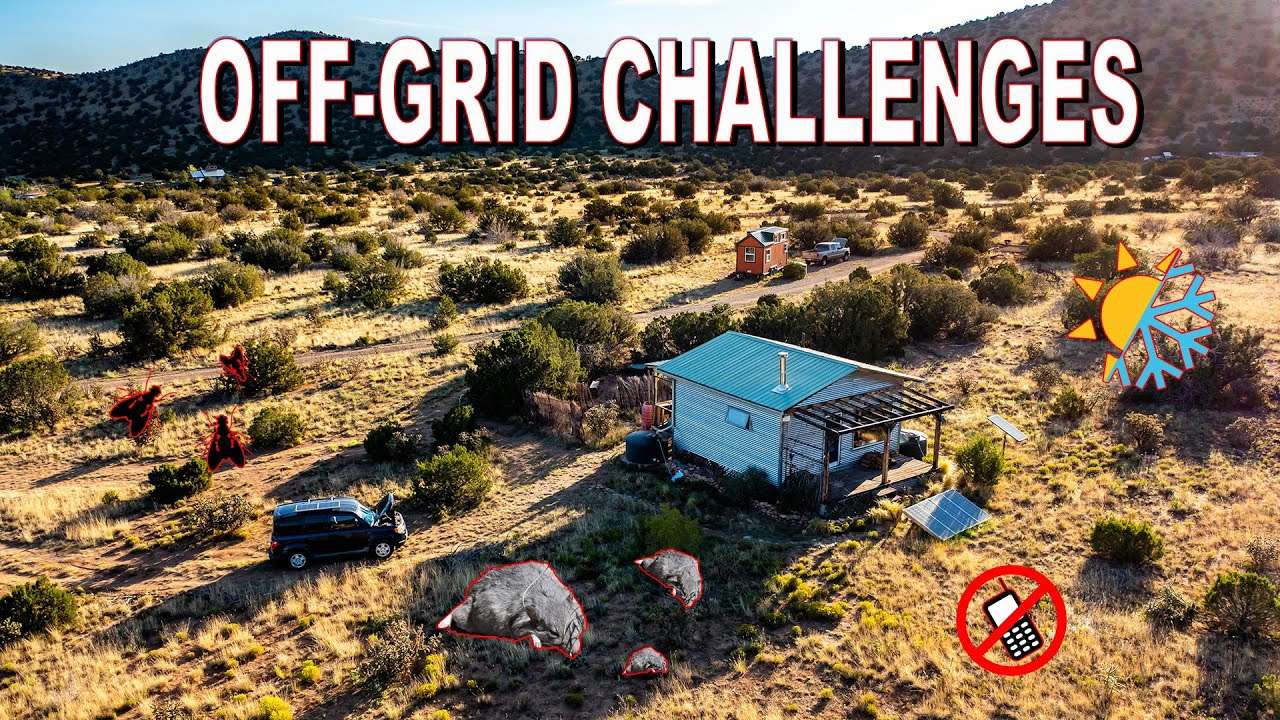
Lack of Water
When it comes to living off the grid in Arizona, the lack of water is one of the most significant challenges individuals and families face. With a semi-arid climate and limited rainfall, finding a reliable source of water becomes paramount.
Issues with Water Availability
Water scarcity is a significant issue in Arizona, with the state experiencing a severe drought. The limited rainfall and reliance on sources like the Colorado River make it challenging to meet the water demands of the growing population. Off-gridders must be prepared to face water shortages and adapt to a lifestyle that conserves and maximizes water usage.
Impact on Daily Life
The lack of water availability impacts various aspects of daily life for off-grid residents. Cooking, cleaning, watering plants, and personal hygiene all require careful water management. Off-gridders must prioritize water conservation in all activities and find alternative ways to gather and store water to ensure their self-sustainability.
Importance of Water Conservation
Conserving water becomes crucial in an environment where resources are limited. Off-gridders must adopt water conservation practices, such as capturing and storing rainwater, implementing low-flow fixtures, and utilizing graywater systems. These measures not only help reduce water consumption but also contribute to the long-term viability of off-grid living.
Alternative Water Sources
In addition to rainwater harvesting, off-gridders in Arizona can explore alternative water sources to supplement their supply. This may involve drilling a well, establishing a partnership with local water cooperatives, or even investing in desalination technologies. By diversifying their water sources, off-gridders can minimize the impact of water scarcity and ensure a more sustainable lifestyle.
Limited Water Sources
While Arizona does have limited water sources, it heavily relies on the Colorado River to meet its water needs. Understanding the challenges associated with limited water sources is crucial for off-grid living in the state.
Dependency on the Colorado River
Arizona’s water supply heavily depends on the Colorado River. However, with the river experiencing a severe drought, water availability becomes a significant concern. The reliance on a single source puts off-gridders at risk during times of drought, emphasizing the need for alternative water sources and effective water management systems.
Drought Conditions
Arizona’s arid climate makes drought conditions a recurring issue. As a result, water scarcity becomes more severe, with potential implications for off-grid residents. Off-gridders must be prepared for extended periods of limited water supply and develop strategies to mitigate the effects of drought on their daily lives.
Water Management and Allocation
Effectively managing and allocating available water resources is critical for off-grid living in Arizona. Whether through the use of storage tanks, water filters, or efficient irrigation systems, off-gridders must implement systems that prioritize water conservation and reduce wastage. Proper water management ensures a sustainable water supply for daily needs and promotes responsible water usage.
Challenges of Relying on Limited Sources
Reliance on limited water sources poses challenges for off-grid living. Competition for water resources, particularly during times of drought, can increase tensions and the need for responsible water consumption. Additionally, off-gridders must carefully plan their use of water, ensuring it lasts between rainfalls or water deliveries. The limited supply requires a proactive and mindful approach to water usage and conservation.
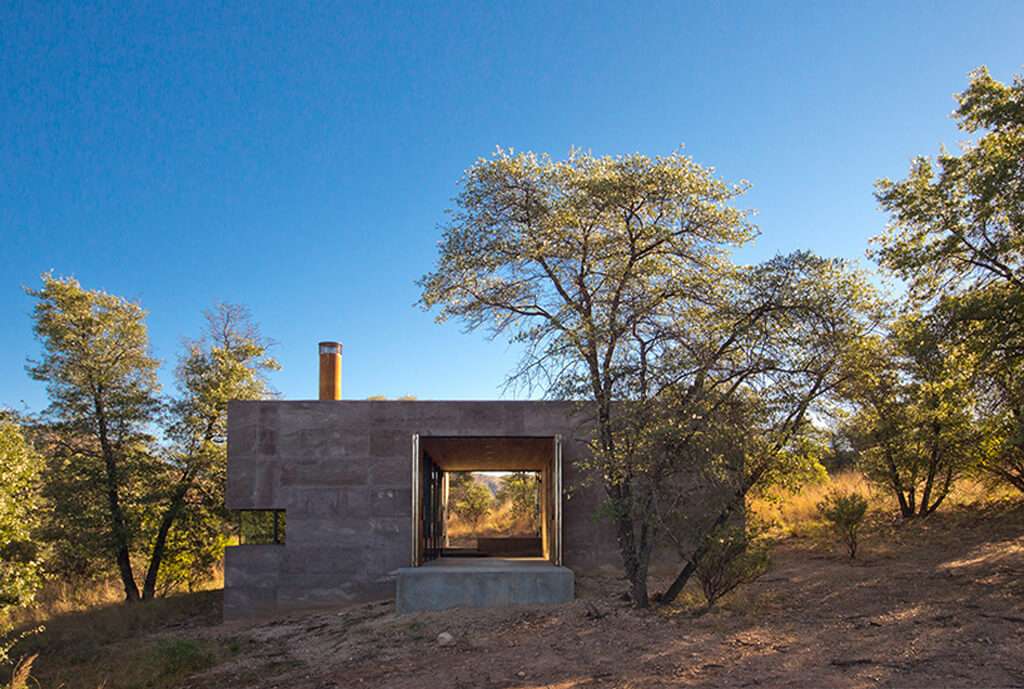
High Population Density in Cities
Arizona’s cities have a relatively high population density, which poses several challenges for individuals seeking to live off the grid.
Impact on Off-Grid Living
High population density in cities can limit the opportunities for off-grid living and self-sustainability. The limited space available within crowded urban areas often makes it challenging to find suitable land for off-grid homes, gardens, or livestock. The high cost of living and increased competition for resources can also pose additional hurdles to achieving a self-sustaining lifestyle.
Limited Opportunities Outside Cities
Off-gridders may find that opportunities for self-sufficient living are more limited outside the cities. Rural areas may have fewer amenities, access to services, or community support for off-grid lifestyles. Consequently, individuals and families seeking a more secluded and sustainable living experience may need to consider regions farther away from densely populated areas.
Challenges of Finding Suitable Land
The high population density in cities makes finding suitable land for off-grid living more difficult. Land prices may be higher, and available plots may be scarce. Moreover, strict zoning regulations and property development restrictions can further limit the land options for off-grid enthusiasts. Patience and persistence are necessary when searching for suitable land within or near populated areas.
Competition for Resources
Living off the grid requires a certain degree of resource self-sufficiency. However, high population densities in cities can strain available resources, making it challenging to acquire or maintain essential needs. From water sources to energy supplies, off-gridders must contend with the competition for limited resources, necessitating careful planning and management strategies.
Hot Temperatures and Dangerous Wildlife
Arizona is notoriously known for its hot temperatures and the presence of dangerous wildlife, both of which present challenges for off-grid living.
Extreme Heat and Its Impact
Arizona experiences scorching temperatures, especially during the summer months. This extreme heat not only affects comfort levels but also poses health risks. Living off the grid, without traditional cooling systems, can make it challenging to stay cool and hydrated during prolonged heatwaves. Off-gridders must be well-prepared and equipped with alternative methods for temperature control and personal safety.
Precautions Against Wildlife
Arizona’s diverse ecosystem is home to various dangerous wildlife. When living off the grid, individuals and families must take precautions to ensure their safety. Proper awareness of wildlife habitats and behavior is essential to minimize potential encounters and conflicts with animals.
Rattlesnakes as a Hazard
Rattlesnakes are a particularly hazardous species found in Arizona. Their venomous bites pose a significant threat to residents, particularly those living in rural and remote areas. Understanding snake behavior, implementing preventative measures, such as clearing brush and sealing entry points, and learning basic first aid for snake bites are crucial safety precautions for off-gridders.
Protection Measures
To mitigate the challenges posed by hot temperatures and dangerous wildlife, off-gridders must take suitable protection measures. Installing alternative cooling systems, such as evaporative coolers or passive cooling techniques, can help alleviate the effects of extreme heat. Furthermore, implementing safety measures, such as snake-proofing structures and creating secure boundaries, can reduce the risk associated with dangerous wildlife encounters.
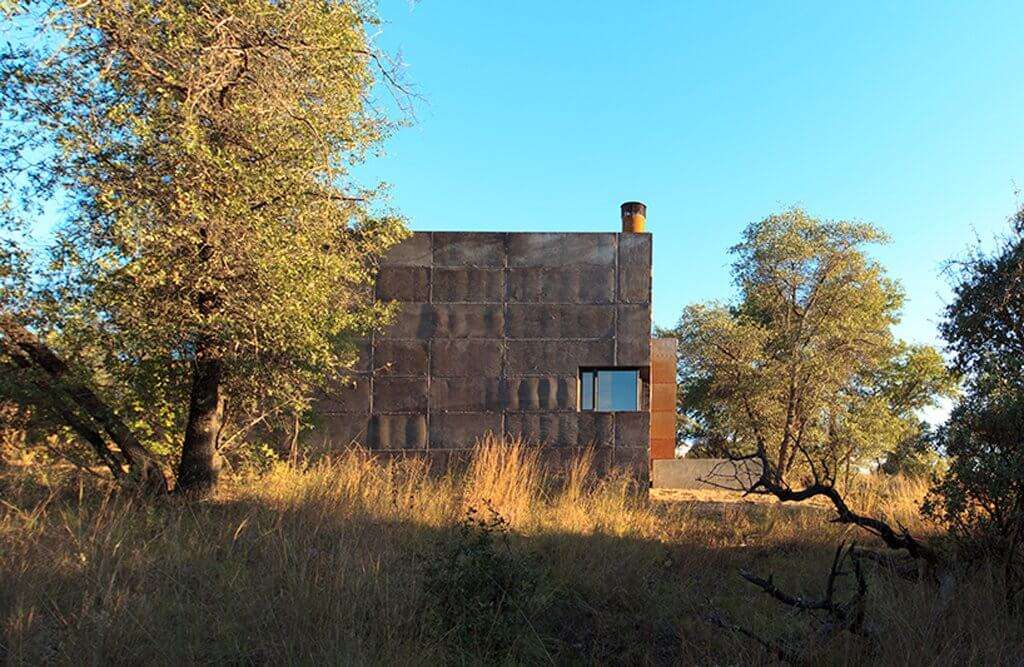
Challenges of Using Solar Power
While solar power is a popular choice for generating electricity in Arizona, it does come with its own set of challenges for off-grid living.
Solar Power as an Option
Arizona’s abundant sunshine makes solar power an attractive option for off-gridders. Solar panels can efficiently harness sunlight and convert it into electricity, offering a renewable and sustainable energy source. However, the implementation and management of solar power systems can present challenges.
Limitations with Air Conditioning
One particular challenge faced by off-gridders utilizing solar power is the high energy demands of air conditioning systems. Arizona’s hot temperatures often necessitate the use of air conditioning for comfort and safety. However, air conditioners consume substantial amounts of electricity, potentially straining the storage capacity of solar power systems. Off-gridders must carefully manage their energy consumption and consider alternative cooling methods to optimize their solar setup.
Balancing Energy Consumption
Solar power systems require careful energy management to ensure a consistent and reliable electricity supply. Balancing the energy consumption of various appliances with the limited energy storage capacity of battery banks becomes critical. Off-gridders must prioritize their energy usage and adopt energy-efficient practices to minimize wastage and maximize the benefits of solar power.
Difficulties in Growing Crops
Arizona’s climate and limited water availability make growing crops a challenging endeavor for off-gridders.
Impact of High Temperatures
Arizona’s high average temperatures pose difficulties for plant growth. Many crops struggle to survive or thrive in the scorching heat. Off-gridders may need to research and select crop varieties that are more tolerant of the arid climate, such as desert-adapted or heat-tolerant crops.
Scarcity of Fertile Land
Finding fertile land for growing crops can be a challenge in arid regions like Arizona. The scarcity of nutrient-rich soil contributes to the difficulty of establishing successful gardens or agricultural practices. Off-gridders must explore alternative methods, such as container gardening, raised beds, or hydroponics, to overcome the limitations imposed by the arid soil conditions.
Limited Water Availability
Water scarcity in Arizona significantly affects crop cultivation. The limited water sources and the need to conserve water for daily needs make it challenging to provide sufficient irrigation for plants. Off-gridders may need to explore water-efficient strategies, such as drip irrigation or graywater recycling, to optimize water usage and ensure the survival of their crops.
Alternative Agricultural Methods
To overcome the challenges in growing crops, off-gridders in Arizona can explore alternative agricultural methods. Hydroponics, aquaponics, or vertical gardening techniques allow plants to grow without relying on traditional soil-based cultivation. These methods maximize water efficiency and provide more control over plant nutrition and growth, making them well-suited for off-grid settings with limited water availability.
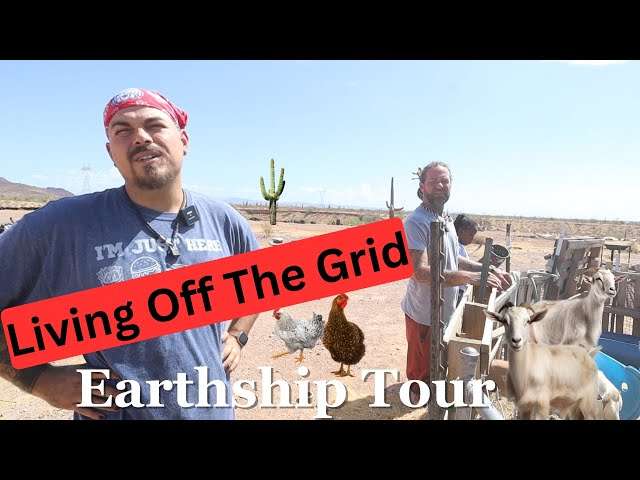
Conclusion
Living off the grid in Arizona presents both challenges and opportunities for individuals and families seeking a self-sustaining lifestyle. While the lack of water, limited water sources, high population density in cities, hot temperatures, dangerous wildlife, challenges of using solar power, difficulties in growing crops, water scarcity, extreme climatic conditions, cost of housing and land, and cost of living pose significant hurdles, there are also opportunities in industries like aerospace, manufacturing, tourism, finance, agriculture, and mining. With careful planning, resource management, and a commitment to sustainability, off-gridders can navigate these challenges and create a fulfilling off-grid lifestyle in Arizona.

